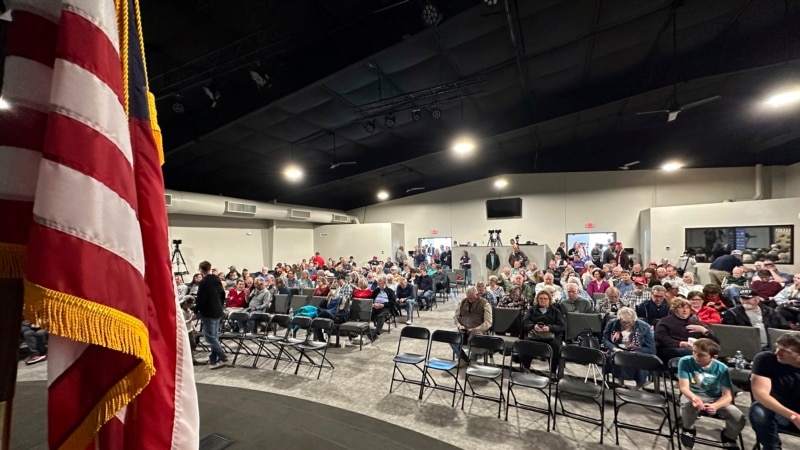Donald Trump won Missouri’s Republican caucuses, one of three events Saturday that will award delegates for the 2024 Republican presidential nomination in the United States.
The former U.S. president, who is especially strong in caucuses, added to his delegate lead with that victory and made gains at a party convention in Michigan. Idaho was scheduled to hold its caucuses later Saturday. His last major rival, former United Nations Ambassador Nikki Haley, is still seeking her first election-season win.
There were no Democratic contests Saturday.
The next event on the Republican calendar is Sunday in the District of Columbia. Two days later is Super Tuesday, when 16 states and American Samoa will hold primaries on what will be the largest day of voting of the year outside of the November election. Trump is on track to lock up the nomination days later.
Michigan
Michigan Republicans at their convention in Grand Rapids began allocating 39 of the state’s 55 GOP presidential delegates. Trump won 33, with six yet to be allocated.
But a significant portion of the party’s grassroots force was skipping the gathering because of the lingering effects of a monthslong dispute over the party’s leadership.
Trump handily won Michigan’s primary this past Tuesday with 68% of the vote compared with Haley’s 27%.
Michigan Republicans were forced to split their delegate allocation into two parts after Democrats, who control the state government, moved Michigan into the early primary states, violating the national Republican Party’s rules.
Missouri
Voters lined up outside a church in Columbia, home to the University of Missouri, before the doors opened for the caucuses.
“I don’t know what my role here will be, besides standing in a corner for Trump,” Columbia resident Carmen Christal said, adding that she’s “just looking forward to the experience of it.”
This year was to be the first test of the new system, which is almost entirely run by volunteers on the Republican side.
The caucuses were organized after Republican Governor Mike Parson signed a 2022 law that, among other things, canceled the planned March 12 presidential primary.
Lawmakers failed to reinstate the primary despite calls to do so by both state Republican and Democratic party leaders. Democrats will hold a party-run primary on March 23.
Trump prevailed twice under Missouri’s old presidential primary system.
Idaho
Last year, Idaho lawmakers passed cost-cutting legislation that was intended to move all the state’s primaries to the same date in May. But the bill inadvertently eliminated the presidential primaries entirely.
The Republican-led Legislature considered holding a special session to reinstate the presidential primaries but failed to agree on a proposal in time, leaving both parties with presidential caucuses as the only option.
The Democratic caucuses aren’t until May 23.
The last Republican caucuses in Idaho were in 2012, when about 40,000 of the state’s nearly 200,000 registered Republican voters showed up to select their preferred candidate.
For this year, all Republican voters who want to participate will have to attend in person. They will vote after hearing short speeches by the candidates or their representatives.
If one candidate gets more than 50% of the statewide votes, that candidate will win all the Idaho delegates. If none of the candidates gets more than 50% of the votes, then each candidate with at least 15% of the total votes will get a proportionate number of delegates.
The Idaho GOP will announce the results once all the votes are counted statewide.
Trump placed a distant second in the 2016 Idaho primary behind Senator Ted Cruz of Texas.

